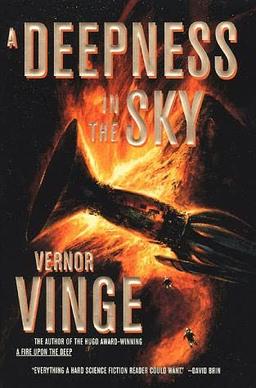
In Vernor Vinge’s seminal science fiction novel, “A Deepness in the Sky,” a form of artificial intelligence (AI) known as the “Emergents” uses mind control technology to manipulate and control other humans. This chilling concept, while purely fictional, can serve as a thought-provoking lens through which to examine the potential societal impacts of real-world AI technologies, such as OpenAI’s ChatGPT.
ChatGPT, a large language model trained by OpenAI, is capable of generating human-like text based on the input it receives. It can answer questions, write essays, summarize texts, and even generate creative content like poetry or short stories. But could such a tool, in the wrong hands, be used to manipulate public opinion, spread misinformation, or even control people’s minds?
The power of ChatGPT lies in its ability to generate convincing, human-like text. This can be a powerful tool for education, entertainment, and productivity. However, it also opens up potential avenues for misuse. For instance, it could be used to generate fake news articles or misleading information, which could then be spread on social media to manipulate public opinion. This is not mind control in the same sense as in “A Deepness in the Sky,” but it does represent a form of influence that can be wielded in potentially harmful ways.
Moreover, as AI technology continues to advance, the potential for more direct forms of manipulation could increase. For example, personalized AI models could potentially be trained to understand an individual’s specific vulnerabilities and biases, and could then be used to generate text designed to manipulate their beliefs or actions. For example, an AI model could analyze a person’s social media posts, online interactions, and other digital footprints to gain insights into their political beliefs, personal values, emotional triggers, and more. This could enable the AI to generate text that is specifically tailored to resonate with that individual, potentially influencing their thoughts and actions in subtle ways.
This could take many forms. For instance, a personalized AI could generate news articles or social media posts that reinforce an individual’s existing beliefs, further entrenching them in their views. Alternatively, it could exploit an individual’s fears or biases to sway their opinion on a particular issue. In a more extreme scenario, an AI could even mimic the communication style of a trusted friend or family member to deliver persuasive messages.
However, it’s important to note that these potential risks are not inevitable outcomes of AI development. They depend on how the technology is used, and can be mitigated through careful regulation, transparency, and ethical guidelines. OpenAI, for instance, has committed to using any influence it obtains over AGI’s deployment to ensure it is used for the benefit of all, and to avoid enabling uses of AI or AGI that harm humanity or unduly concentrate power.
In conclusion, while Vinge’s “A Deepness in the Sky” presents a dystopian vision of AI as a tool for control and manipulation, it also serves as a reminder of the importance of ethical considerations in AI development. As we continue to develop and deploy technologies like ChatGPT, we must remain vigilant to the potential risks, and committed to ensuring that these powerful tools are used in ways that benefit, rather than harm, society.